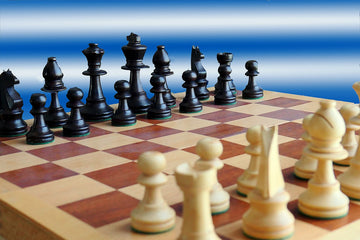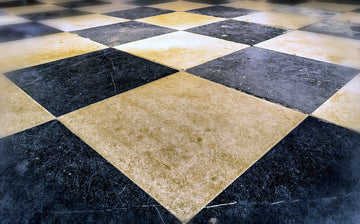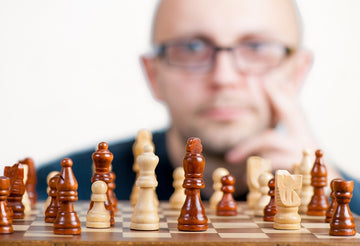
Every game has an origin, but very few match up to the rich history of chess. At times, it there are some really weird chess facts that are nevertheless fun to learn for anybody. We have compiled a list of some chess facts that may surprise you. We assure you that some of these chess facts might even have you laughing out loud!
1. Did you know that the possible number of unique chess games is more than all the electrons in the universe?
Yes, you read that right! The total number of unique chess games is of the order of the 120th power of 10. On the other hand, the total number of electrons in the universe is close to the order of the 79th power of 10. This is miles apart! Ironically, the longest chess game possible is just 5949 moves. Officially, the longest chess match lasted 269 moves and ended up in a draw! What are the odds of that happening?
2. The word Checkmate comes from the Persian word "Shahmat"
The game of chess ends in victory for that player who checkmates their opponent. But where did this word originate from? As the game of 'shatranj' spread from India to other parts of Asia, the Persians would coin the term "Shahmat" which means that the "King is Dead". Did you know that it is possible to checkmate your opponent in just the first two moves? Yes! Just the first two moves can make you triumphant and worthy of a lot of admiration. Some of the quickest checkmates are the 'Fool's Mate' and 'Scholar's Mate'. Interestingly, there are 8 different methods to checkmate your opponent in the first 2 moves and 355 different methods to checkmate your opponent in the first 3 moves.
To learn more about the the quickest checkmates, check out our article on the shortest chess games below:
3. Chess increases memory function
Chess is not just a game but it is also an instrument to sharpen memory and improve one's ability to concentrate. It is used by medical professionals to supplement the treatment of a wide range of illnesses such as Alzheimer's disease and Autism. More often that not, people unable to communicate and express ideas, are able to do so using chess. They are able to understand and express the relationship among pieces and how to arrive at the final goal. One could say that, "Chess is a language of it's own."
It is perhaps not at all surprising to learn that the second book to have ever been published was about chess. The game of chess is recommended to children due to it's positive effects on brain development. The great scientist who is considered a very rare genius, Albert Einstein, however, remained away from game. He would reason that he had limited time and that he would like to keep himself away from anything that involves him working his brain but later on got hooked onto it.
4. Blinfolded Chess?
On the opposite spectrum, some of the strongest players are able to perform a vast range of calculations and maximize memory utilization. So much so, that they are able to play chess only using the notations without even using a chessboard! Yes, they are able to play blindfolded because they have such an evolved memory allocation and concentration. The record for playing the most number of blindfolded games simultaneously was set in 1960 by the Hungarian, Janos Flesch. He played 52 opponents simultaneously, while winning 31 of those games.
5. The folding chess set came into existence in 1125
Playing Chess can be very alluring but what if someone stops you from playing it? Of course, you would be sad but would you really quit playing or would you figure out a way to play it without getting caught? A priest was barred from playing chess as a part of his duty to the church. To tackle this issue and keep playing chess, he invented the world's first folding chess set so that he could hide it by showing others that it was just a set of books. It did become news and folding chess came into popular use. Not only is it convenient to conceal and carry around but it also allows for a more practical solution to transporting a chess set.
6. Age is just a number
The game of chess is popular among both young and old. The oldest person to become a chess master was Oscar Shapiro and he was 74 years old then while the youngest person to become chess Master is Jordy-Mont-Reynaud and he was just 10 then. When it's about mastering chess through proper practice and true dedication, age is actually just a number. A game that has it's origins in India must surely have indigenous talent. Surely, one name that pops up in everyone's mind is Vishwanathan Anand, an Indian chess Grandmaster. Viswanath Anand is the first person in the world who won all three rounds of World Chess Championship Tournament.
In 1985, Garry Kasparov became the youngest World Chess Champion at the age of 22 years and 210 days.
Dr. Emanuel Lasker has retained his title of World Chess Champion for more time than anyone in history which is 26 years and 337 days.
So, if you still have these facts lingering on your mind, chances are that you could be among the 600 million people all over the world who are well versed with the game. If not, we're still enthralled that you've read the entire article and hope that we have inspired the chess bug in you!




